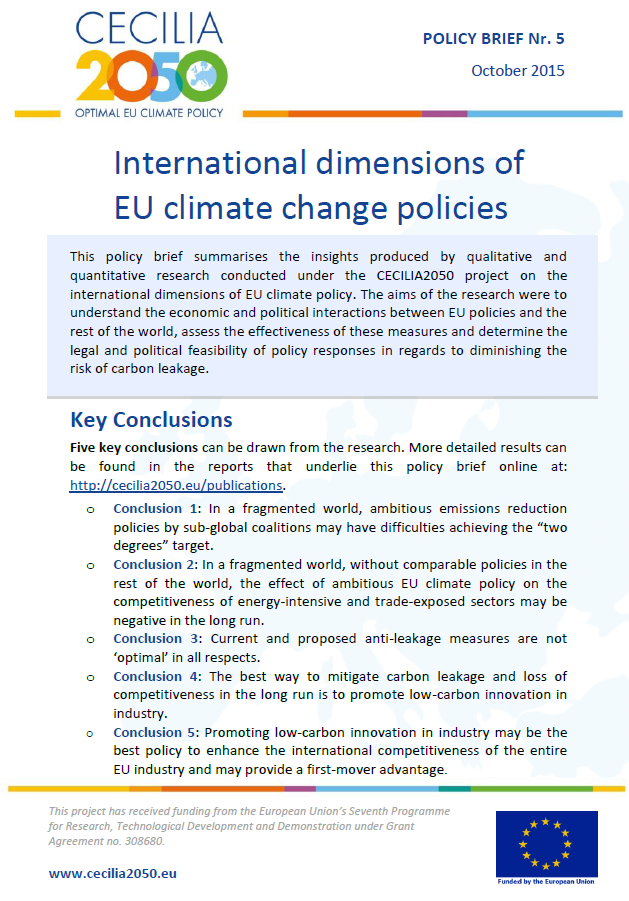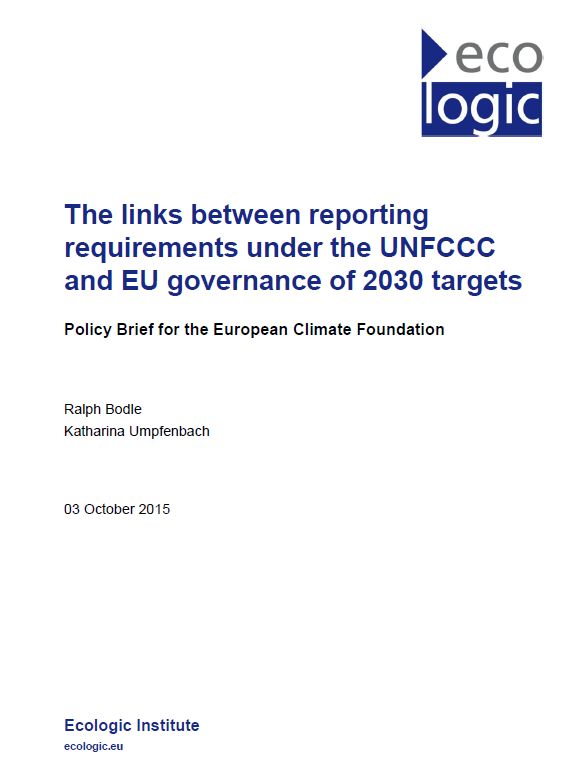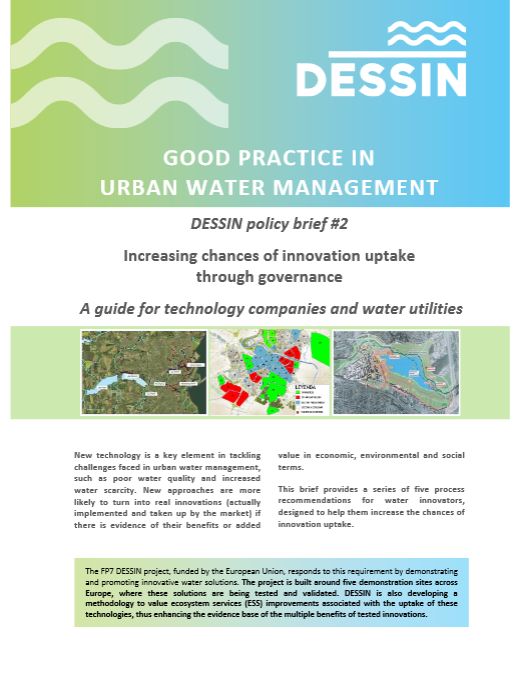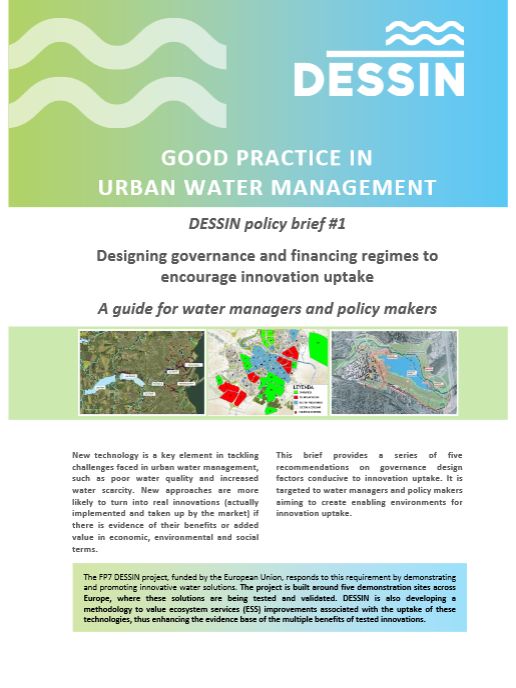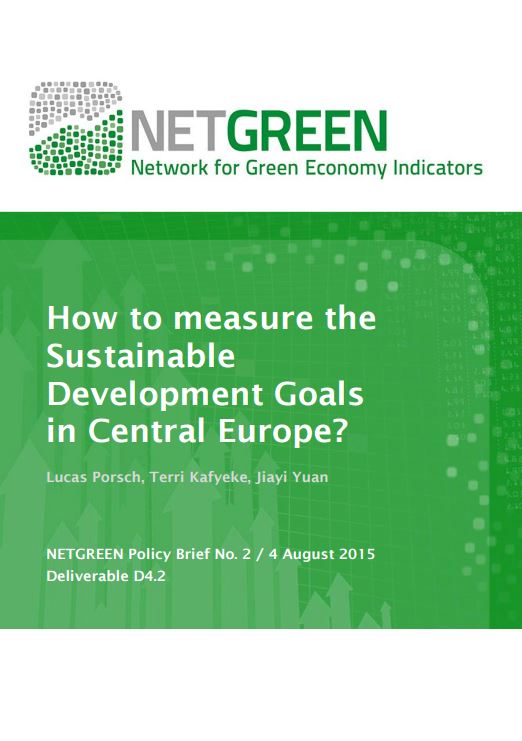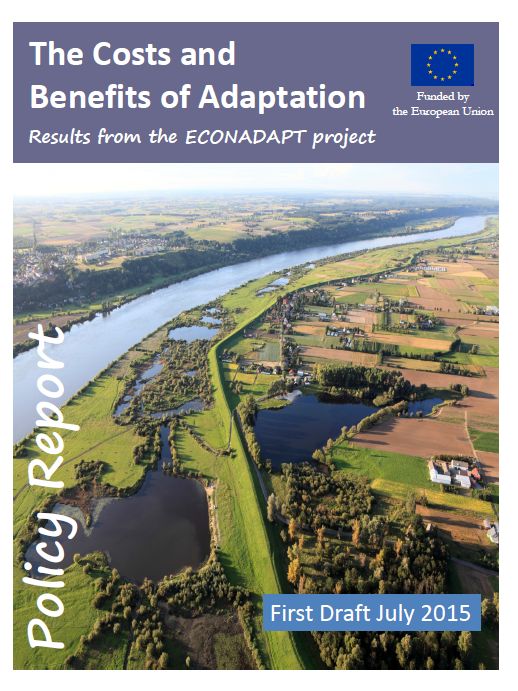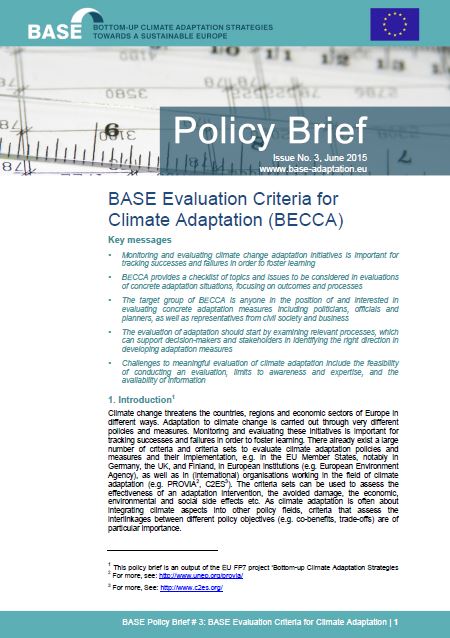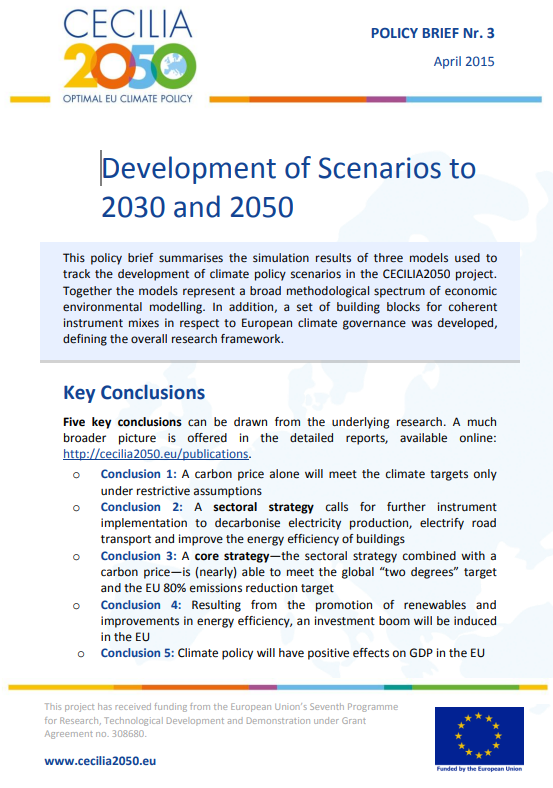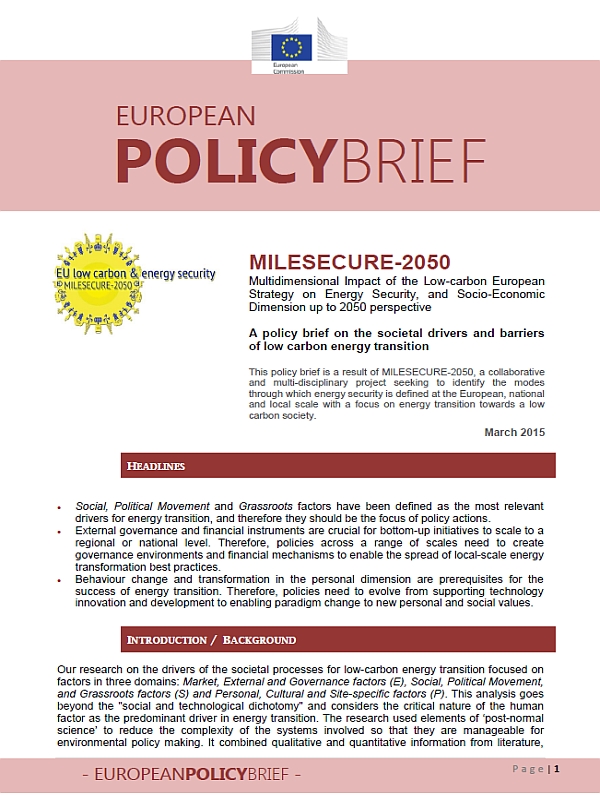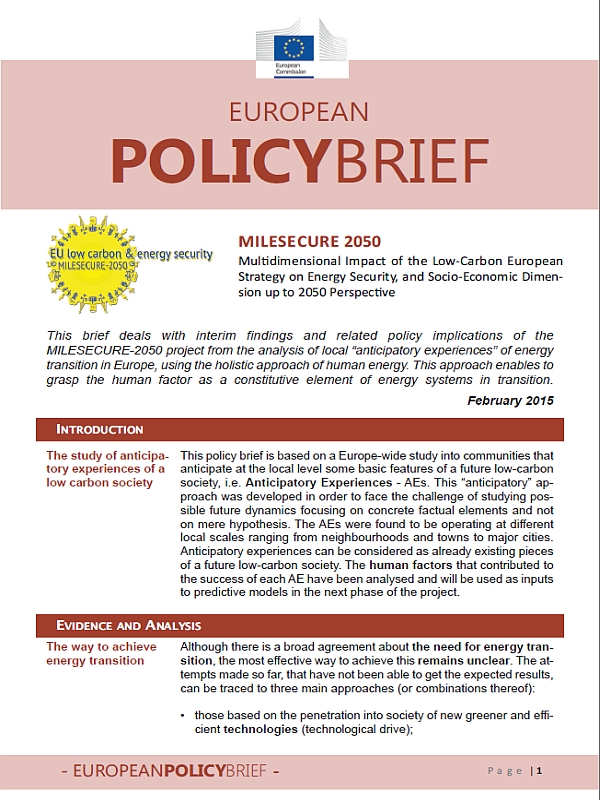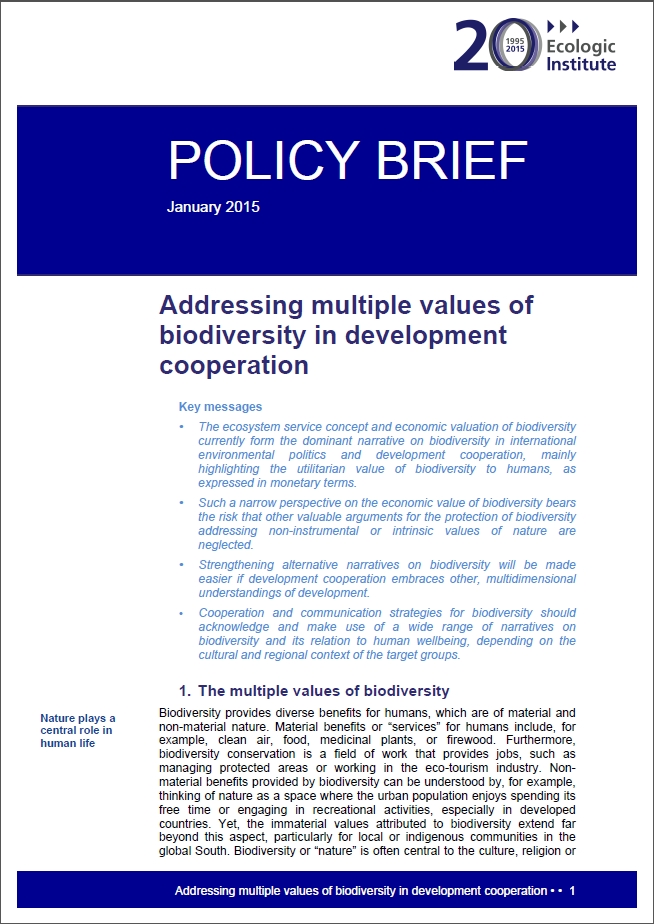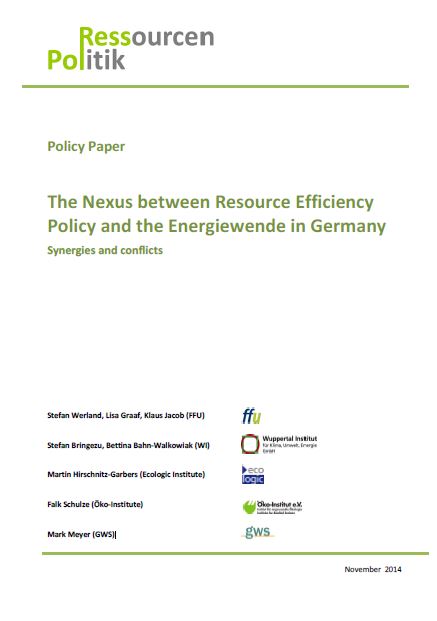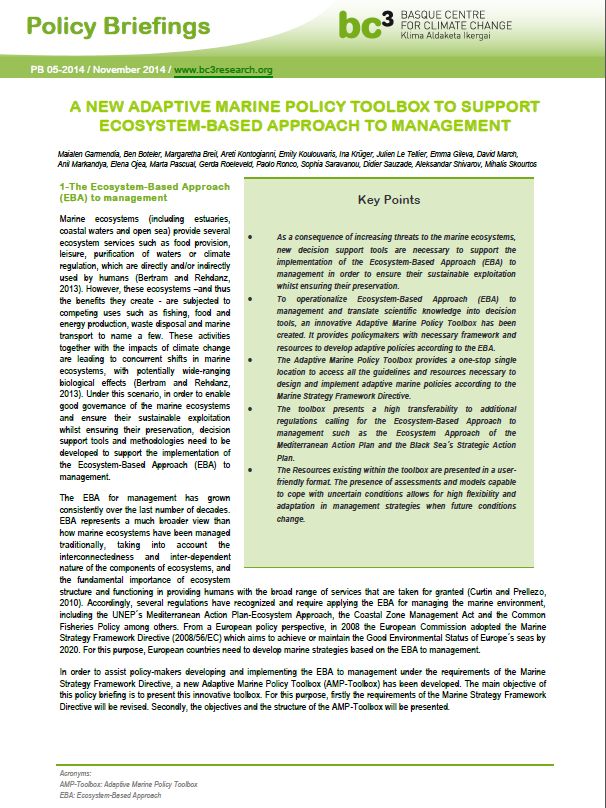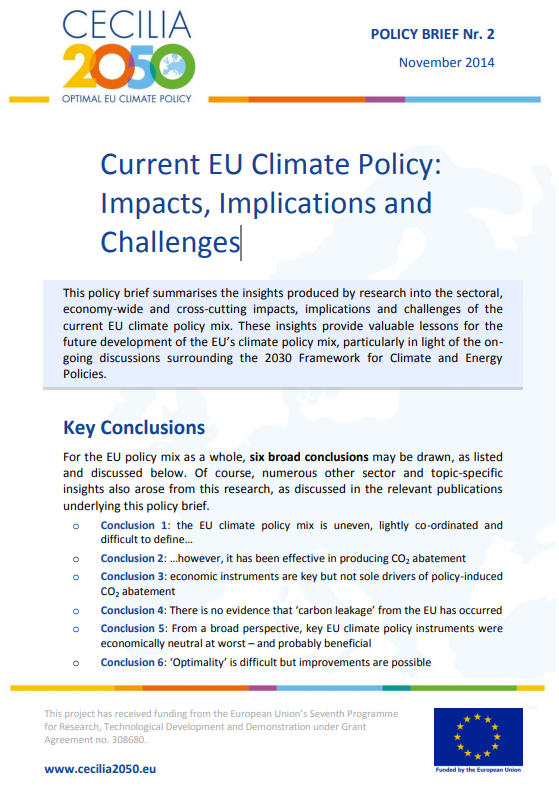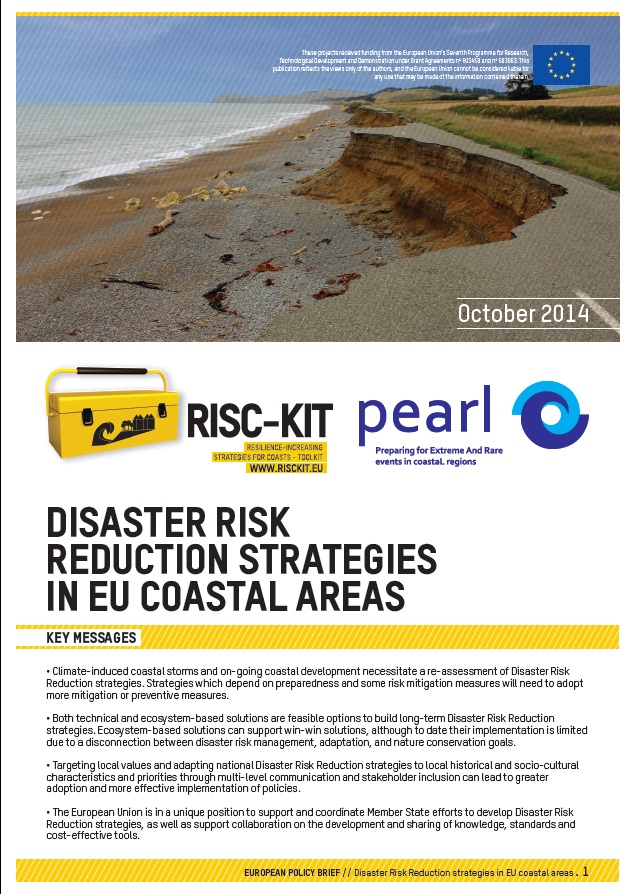Publication:Policy Brief
Publication:Policy Brief
Publication:Policy Brief
Increasing Chances of Innovation Uptake Through Governance
A guide for technology companies and water utilities
Year
Read morePublication:Policy Brief
Designing Governance and Financing Regimes to Encourage Innovation Uptake
A guide for water managers and policy makers
Year
Read morePublication:Policy Brief
Publication:Policy Brief
Publication:Policy Brief
BASE Evaluation Criteria for Climate Adaptation (BECCA) – BASE Policy Brief # 3
BASE Policy Brief No. 3
Year
Read morePublication:Policy Brief
Publication:Policy Brief
Publication:Policy Brief
Publication:Policy Brief
Publication:Policy Brief
The Nexus between Resource Efficiency Policy and the Energiewende in Germany
Synergies and conflicts
Year
Read morePublication:Policy Brief
Publication:Policy Brief
Current EU Climate Policy: Impacts, Implications and Challenges
CECILIA2050 Policy Brief No 2
Year
Read morePublication:Policy Brief
